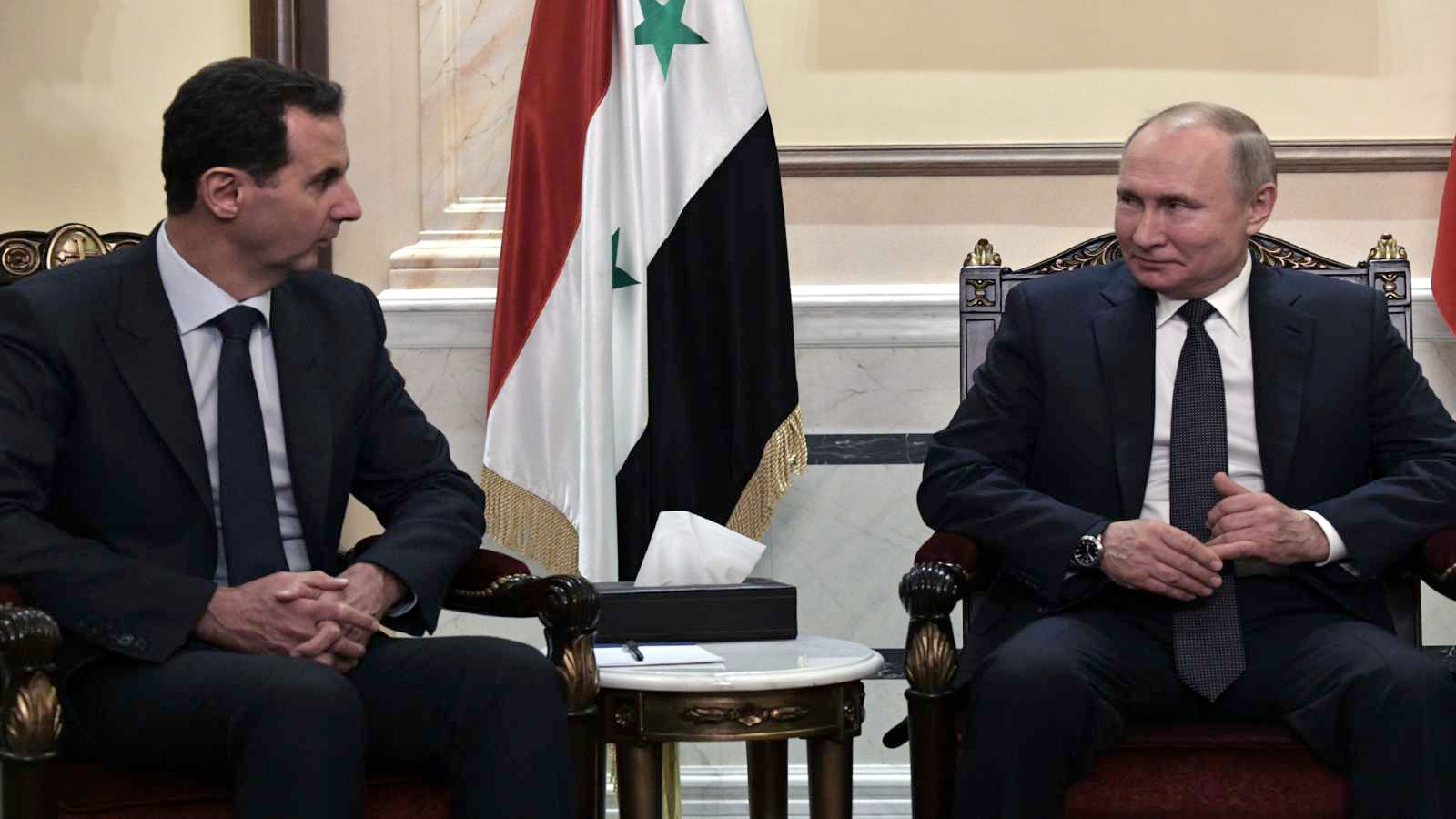
The outgoing Trump administration appears to have made little if any progress in achieving its goal.
Earlier this month, a Trump administration official told Congress that Washington’s goals for the outcome of Syria’s civil war remain “within reach.”
Those goals are the “enduring defeat” of the Islamic State, a political solution to Syria’s near decadelong conflict and the withdrawal of Iranian-led forces from the country. “Our leverage in Syria is increasing,” Syria envoy Joel Rayburn told the House Foreign Affairs Committee.
But veteran officials of the three-year-old policy have been showing signs of doubt, particularly about Iran’s military presence in the war-torn country.
“Are we ever going to get to a place where Iran does not have forces in Syria?” said Michael Mulroy, a former deputy assistant secretary of defense for the Middle East, during a think tank event on Dec. 17. “I mean, people that are smarter on this than I have told me, no, that’s not going to happen,” he said.
Mulroy, a veteran CIA paramilitary officer who worked on Syria during his time at the Pentagon, suggested that minimizing Tehran’s influence in the Levant should remain a US goal. “Maybe we should have a smarter take to it,” he added Thursday.
So far, the Trump administration has wagered that a barrage of economic sanctions could force Iran’s leaders to rethink the financial costs of their regional military adventures. Washington has also supported Israel’s air campaign against Iranian targets in Syria.
Speaking alongside Mulroy last week, Rayburn’s predecessor, recently retired Ambassador James Jeffrey, credited Israel’s campaign with inflicting “devastating losses” on Tehran’s military hardware supply lines into Syria.
Moreover, Iran’s departure from Syria remains a prerequisite for the United States “to stop our overall campaign that has done such damage to [Bashar al]-Assad and has stopped the Russians and Assad from achieving military victory,” Jeffrey told Al-Monitor earlier this month.
But asked whether that pressure was enough to actually send Iran’s forces and other foreign fighters home, the former envoy offered a rhetorical shrug.
“We have a policy of the total denuclearization of North Korea. Is that a realistic policy?” Jeffrey said Thursday at the virtual event hosted by the Jewish Institute for National Security of America.
“There is a certain benefit in taking a maximalist position,” to support “what might be the real policy, which is to neutralize any offensive capability of Iran, using Syria as a platform” to threaten Israel, Saudi Arabia and other US regional partners, he explained.
That at least has been a success, Jeffrey and Rayburn have said in recent weeks. But Iran still maintains major economic leverage over the Assad regime, including significant control over Syria’s natural resources.
“The Trump administration correctly identified the problem but pursued an all-or-nothing policy that vastly overestimated Washington’s leverage over Tehran,” Elizabeth Dent and Ariane Tabatabai wrote in Foreign Affairs last week. “This approach has only entrenched and expanded the Islamic Republic’s influence in Syria.”
To some experts, the question is not whether Washington can squeeze all Iranian forces out of Syria, but rather in what way the incoming Biden administration will carry on the Trump administration’s pressure campaign while re-engaging Tehran over its nuclear capabilities.
“Biden will have to decide if he’s prepared to use leverage with the JCPOA (the nuclear deal) to try to get Iran to pull back,” said Michael O’Hanlon, a senior foreign policy fellow at the Brookings Institution.
“But the Biden team seems more inclined to want to return to the earlier accord on its own terms, which of course did not seek to limit Iranian behavior in the region,” O’Hanlon told Al-Monitor.
“Even if the Biden team wanted to be tougher on Tehran, the most logical first thing to do is demand that the JCPOA be extended in time — not to bring in all the various regional conflicts [into the negotiations], each of which would require painstaking and long negotiations for progress to be possible,” he said.
Last week, Iran’s President Hassan Rouhani signaled that his country’s ballistic missile program and regional influence would not be a part of future talks with the Biden administration over Tehran’s nuclear program.
What path the incoming administration chooses to address Iran’s support for the Houthis in Yemen, for militias in Iraq and for Assad’s regime remains to be seen.
Meanwhile, Jeffrey last week portrayed the US position in Syria as more precarious than his successor recently implied.
The former envoy laid out three potential scenarios that he said would end in bad outcomes for Washington in Syria. The first would be if Russia allowed Ankara to renew last year’s attack on the US-backed and Kurdish-led Syrian Democratic Forces in the country’s northeast.
That, he said, would cause a crisis between Ankara and Washington “and also probably force American troops out of the northeast” of Syria, thus pulling the rug out from under the US pressure campaign against Assad.
Alternatively, if Russia were to hit Turkish forces hard in northwest Syria’s opposition enclave in Idlib, it could lead officials in Ankara to make a political decision back down, he said.
The third bad-outcome path, Jeffrey suggested, would be if the Biden administration returns to what Jeffrey has described as the Obama administration’s piecemeal Syria policy, which was not subsumed under a strategic approach to Iran.
“That is the gift that this administration is giving the Biden administration,” Jeffrey said.
 Eurasia Press & News
Eurasia Press & News
